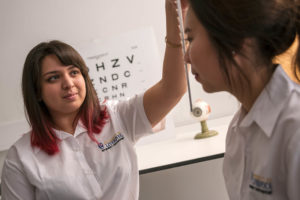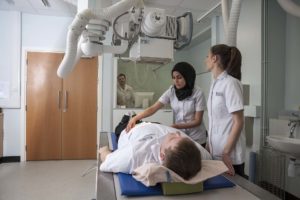How you'll learn
The programme combines taught modules with a work-based model of learning so that you graduate ready to meet the demands of health and social care professions and the NHS workforce transformation agenda.
Alongside interactive lectures, seminars, workshops, tutorials and independent study, work-based learning is a key component of this programme. Emphasis will be placed upon the development of meaningful communities of practice where you’ll be encouraged to share knowledge you’ve gained with your peers.
A blended approach is adopted, with a combination of online and campus teaching used for the majority of modules.
How you're assessed
The assessments on this programme are designed to authentically reflect the requirements of a constantly changing global health and social care environment. They vary from practical skills assessments to a personal development plan and exercises to enhance your digital literacy.
The programme includes a combination of written exams, objective structured clinical examinations (OSCEs), presentations, posters and assignments. There is also a dissertation which can be completed across one academic year and is normally undertaken as the final module of the course.
Compiling a professional portfolio will enable you to consolidate your learning and ensure you can demonstrate the knowledge, skills and behaviours required of an advanced practitioner.
Liverpool Hallmarks
We have a distinctive approach to education, the Liverpool Curriculum Framework, which focuses on research-connected teaching, active learning, and authentic assessment to ensure our students graduate as digitally fluent and confident global citizens.
The Liverpool Curriculum framework sets out our distinctive approach to education. Our teaching staff support our students to develop academic knowledge, skills, and understanding alongside our graduate attributes:
- Digital fluency
- Confidence
- Global citizenship
Our curriculum is characterised by the three Liverpool Hallmarks:
- Research-connected teaching
- Active learning
- Authentic assessment
All this is underpinned by our core value of inclusivity and commitment to providing a curriculum that is accessible to all students.









